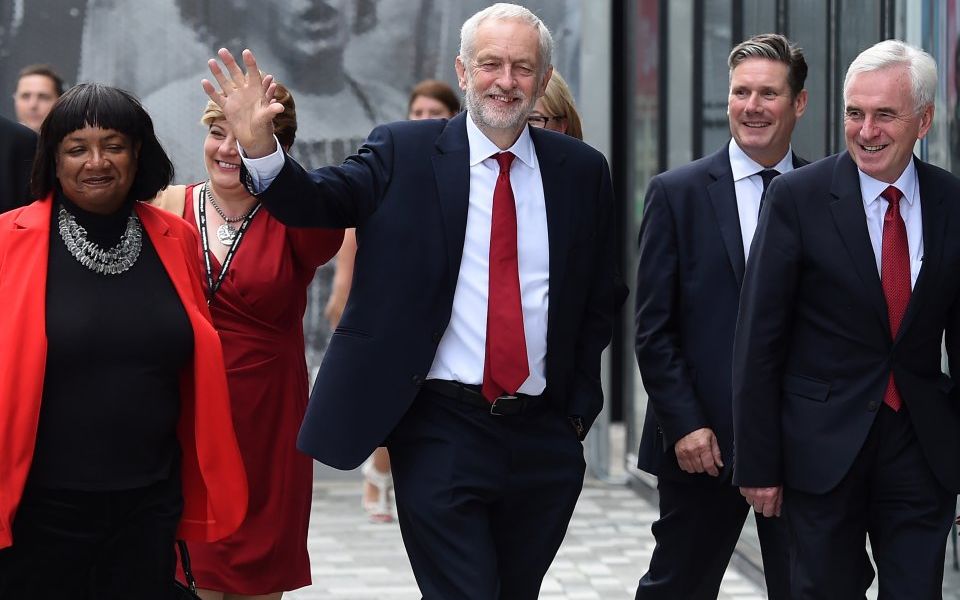The Labour danger: Pricing in the possibility of a Corbyn-led government

It has been 18 months filled with political surprises, and at a time when nothing seems to be off the cards, the possibility of a Corbyn-led government perhaps isn’t as farfetched as some of us imagined.
While many businesspeople are praying this never comes to light, it’s still a risk that can’t be ignored.
In fact, the European equity team at Morgan Stanley recently warned that the possibility of a Corbyn-led government is a bigger risk to British business than Brexit – a sobering statement given the disarray of the divorce negotiations so far.
The investment bank suggested that there could be another General Election towards the end of next year as the Conservative government becomes increasingly fractured over Brexit, paving the way for Labour to muscle into power.
But Morgan Stanley warned that Labour policy changes would serve as a blow to the valuations of British companies.
“From a UK investor perspective, we believe that the domestic political situation is at least as significant as Brexit, given the fragile state of the current government and the perceived risks of an incoming Labour administration that could potentially embark on a radical change in policy direction,” the report reads.
There are concerns that a Labour-enthused tax hike, including a boost to corporation tax, could hinder British jobs and wages, particularly in financial services.
Morgan Stanley also warned that the utility sector, particularly water and power companies, postal services, telecommunications, and travel firms, would be at risk.
Of course, the renationalisation of companies, which could be invoked by a Labour government, would likely prompt a surge in repricing of assets.
Echoing these concerns, investment veteran and chief executive of Old Mutual Global Investors (OMGI), Richard Buxton, says one of the biggest risks going into 2018 is the possibility that Corbyn could end up being Prime Minister in the not-so-distant future.
“I think markets are not remotely pricing in the high possibility of a Corbyn, socialist, highly redistributive government coming to power over the course of the next few years, months, or even weeks,” he says.
Labour’s youth-friendly manifesto propped up the party’s votes in the snap election, and pushed the issue of intergenerational unfairness firmly centre stage.
“Capitalism is not working for the under-40s who have loads of student debt, are working zero-hour contracts, and who haven’t got a cat in hell’s chance of getting on the property ladder. If capitalism isn’t working, they’re going to vote for something else,” Buxton says.
“Unless the government really grasps this, which it isn’t doing because its bandwidth is entirely taken up by the B-word, then we are sleepwalking into an electoral disaster.”
But what can you do, if anything, to protect yourself from this possibility?
The OMGI chief points out that there are plenty of cheap UK domestic-orientated shares in the market, such as Lloyds and Next.
But he also argues that sterling is on a long-term downward trend.
“Whenever we hit the next downturn in the UK, we can’t really do anything with fiscal or monetary policy – meaning sterling is the only safety valve; the UK will always end up letting the currency weaken to help the economy.”
But the question of currency is always a tricky one, and Michael Stanes at Heartwood Investment Management says investors would need to have a relatively high conviction that a Labour administration is going to come to pass if they plan to move out of sterling at this point.
The investment director warns about the impact of a Labour government on UK assets overall, but his firm has taken a cautious approach to UK equity, gilts, and property – particularly the commercial and residential markets in London.
“We would expect more domestically-orientated sectors to be negatively impacted, particularly retail, banking, smaller companies, and utilities as renationalisation fears take hold.”
Skewing investment towards international companies listed in the UK might be a wise move.
While investors might be treating the prospect of a Corbyn-led government as a risk, many simply don’t think it’s a possibility that could come to fruition any time soon, and therefore won’t be positioned for it.
Brewin Dolphin’s Guy Foster says: “the status quo simultaneously suits everyone and no one at the moment, in that it avoids another election.”
Of course, another election would give Labour more momentum, and yet it’s reasonable to assume that the Conservatives would run a better campaign than the last one.
But a change in the ruling party would probably hinder private finance initiatives, and Foster suggests any policy changes would look quite “Miliband-esque”.
“People have been crying out for a radical alternative, but it’s one thing having a mandate for change, and another thing entirely to deliver change.”